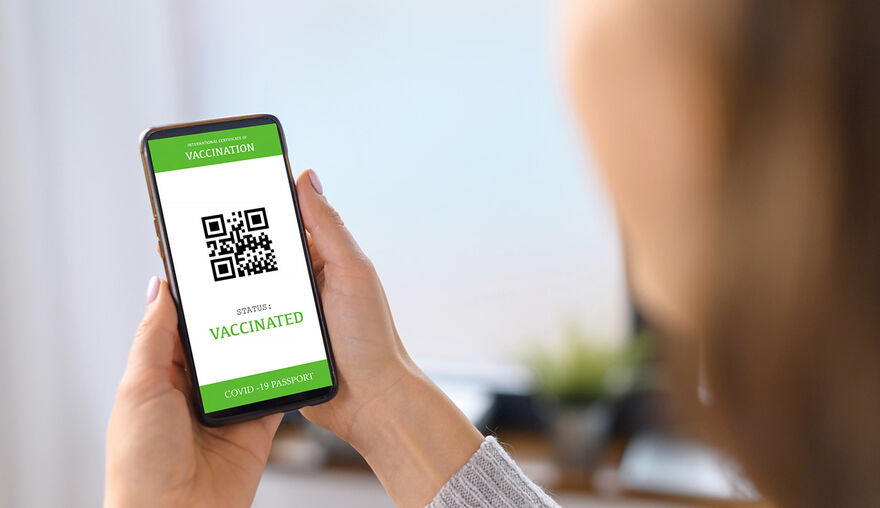On 1 October 2021, the Department of Health and Social Care published guidance on how individuals may apply for proof, via the NHS COVID Pass, that they are unable to be vaccinated and/or tested for COVID-19 for medical reasons.
The guidance is particularly relevant for the care sector, where individuals need to demonstrate their COVID-19 vaccination status to work or volunteer in a care home from 11 November 2021.
On 15 September 2021, the Department of Health & Social Care wrote to the care sector to announce a temporary period of self-certification for individuals working or volunteering in care homes who were unable to have the vaccine for medical reasons.
This self-certification period expires 12 weeks after the NHS COVID Pass system is “launched”. Individuals will then be required to show official proof of medical exemption through the NHS COVID Pass system.
The accepted medical exemptions for the NHS COVID Pass system mirror those previously announced for the self-certification forms (end of life care, learning disabilities, severe allergies or adverse reaction to the first dose).
Once the NHS COVID Pass system is launched (the official “launch” date remains unclear), care home workers will need to apply for a formal medical exemption through that process or have a full course of the COVID-19 vaccine. An individual’s medical exemption will be confirmed by a doctor, specialist clinician or midwife.
Individuals can apply for the COVID Pass medical exemption by:
- Telephoning the NHS COVID Pass service and requesting an NHS COVID Pass medical exemptions application form.
- If eligible, the application form will be sent by post.
- The form will then need to be completed and returned to the relevant GP or clinician to be reviewed.
- The results will be posted 2 to 3 weeks after applying (individuals won’t need to contact their GP, unless asked to do so).
- The NHS COVID Pass will be available if approved.
- The clinical decision on the medical exemption is final and cannot be appealed.
The guidance states pregnant women can use MAT B1 certificates to show medical exemption from the vaccine, they do not need to apply for a NHS COVID Pass. The exemption provided by the MAT B1 certificate will expire 16 weeks post-partum.
Simon DeMaid comments
The guidance provides a clear explanation to individuals on how to obtain official proof of medical exemption from vaccination, although it provides little detail for the care sector.
It remains unclear whether the NHS COVID Pass has been “launched” and how to interpret the letter from the Director of Adult Social Care Delivery, which provided for a self-certification period that expires 12 weeks after the launch of the NHS COVID Pass system.
As the NHS website states, from the 1 October 2021 at 11:30 am, individuals have been able to apply for medical exemptions to the vaccine using the NHS Covid Pass, which would suggest the 12 week self-certification period expires on 24 December 2021 (Christmas Eve) – although further clarity is needed.
The guidance estimates a turnaround of 2 to 3 weeks from the date the application is made for a medical exemption under the NHS COVID Pass. Employers should recommend any staff who wish to rely on self-certification make an application as early as possible in order to avoid any delays.
For further information on this subject, please contact a member of the team here.
WEBINAR FOR CARE HOME OPERATORS: TACKLING WORKFORCE ISSUES
This is one of the current issues which our panel of experts will be discussing in our upcoming webinar 'Tackling Workforce Issues' on Tuesday 19th October. For more information and to register your place, please visit our booking page.
The information on this site about legal matters is provided as a general guide only. Although we try to ensure that all of the information on this site is accurate and up to date, this cannot be guaranteed. The information on this site should not be relied upon or construed as constituting legal advice and Howes Percival LLP disclaims liability in relation to its use. You should seek appropriate legal advice before taking or refraining from taking any action.

